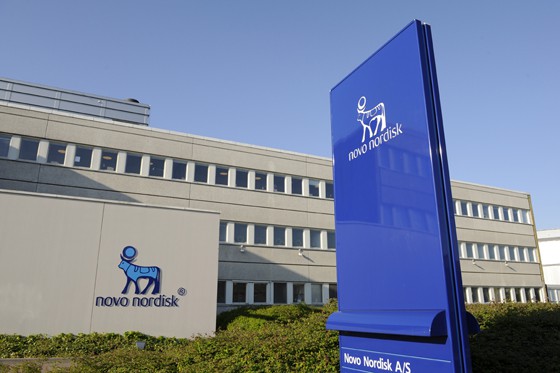
Novo Nordisk has submitted its long-acting Factor IX product nonacog beta pegol for approval in Europe, with a US filing due in the next few months.
The long-acting form has a half-life in the body five times that of older Factor IX drugs such as Pfizer’s BeneFix, which could see it cut the number of infusions needed to control bleeds in half. The actual frequency of infusions depends on a number of factors, including the weight and health of haemophilia B patients.
The filing is based on the results from the PARADIGM clinical trial programme, which involved 115 patients with severe or moderately-severe haemophilia B. Novo Nordisk’s drug was shown to be effective in preventing bleeding episodes, as well as on-demand treatment of bleeding episodes.
Once-weekly administration of nonacog beta pegol maintained Factor IX activity levels above 15% and reduced the median annualised bleeding rate (ABR) to 1.0, with data suggesting it could prevent bleeds in target joints. Patients also reported an improvement in quality of life during the trial, said Novo Nordisk.
If approved, nonacog beta pegol will compete on the market with Biogen’s long-acting Factor IX product Alprolix (eftrenonacog alfa), which was approved by the FDA in 2014 and filed in Europe by Biogen and partner Sobi last June.
Alprolix extends the half-life of the clotting factor by linking it to an antibody fragment, while another long-acting Factor IX candidate – CSL Behring’s CSL654 which has been filed in the US, Europe and Japan – does so by joining it to albumin protein.
Since its launch, around half of all moderate-to-severe haemophilia B patients treated with Factor IX prophylaxis have switched to Biogen’s drug, according to the company, which booked $66m from sales of the drug in the third quarter of 2015.
Biogen is a relative newcomer to the haemophilia market but has focused on long-acting, recombinant products as it tries to claw market share long-established players like Novo Nordisk, CSL Behring and Baxalta, which launched BeneFix rival Rixubis in 2013.
According to market research firm Frost & Sullivan (F&S), the haemophilia market was worth a little under $10bn in 2014 but will reach $13.4bn in 2019 thanks in part to the introduction of longer-acting therapies, particularly for haemophilia B.
“With its high factor activity level, less frequent dosing and very low ABRs, nonacog beta pegol has the potential to improve the quality of life for both patients and their families,” said Novo Nordisk’s chief scientific officer Mads Krogsgaard Thomsen.




